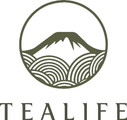How much caffeine is in a Matcha Latte?
Frequently asked questions regarding Matcha
How much caffeine is in a Matcha Latte?
It depends on the quantity of Matcha powder used in the Latte, but it generally ranges from 64 to 192 mg of caffeine.
There are several different Matcha Latte recipes, but the typical ingredients range from 1-3 teaspoons of Matcha powder. Each teaspoon is roughly 2g of Matcha powder.
According to MAFF data (Ministry of Agriculture, Forestry, and Fisheries of Japan), each gram of Matcha powder consists of roughly 64mg of caffeine.
Therefore, if the recipe consists of 3 teaspoons, it becomes 192 mg of caffeine.
This amount of caffeine is potentially high.
The US FDA recommendation for a healthy person is 400 mg of caffeine. That means two servings of strong Matcha lattes will maximize the recommended caffeine quantity for the day.
This situation can be especially relevant for Matcha lovers in particular. Because more quantities of Matcha effectively increase the Matcha taste of the Latte, people who love Matcha tend to go for a higher amount of Matcha powder.
How does this compare to a regular Matcha?
The normal Usucha, or thin-tea style Matcha preparation, is made with roughly 1.5 to 2 grams of Matcha powder. This amount means the caffeine content will be between 48 to 64 mg.
The Koicha, or the thick-tea style Matcha preparation, uses much more Matcha powder. It requires roughly 4 grams of Matcha powder for each serving. Four grams of Matcha means the caffeine content will be approximately 128 mg.
How does this compare to coffee?
A typical 8 oz cup of coffee contains between 70 to 140 mg of caffeine. On average, it falls to 95 mg of caffeine per cup of coffee.
Therefore, you can argue that the range of caffeine in a Matcha latte is comparable to that of coffee.
However, there is one key difference between Matcha and coffee. This is the substance L-theanine contained in Matcha and other green tea.
L-theanine is an amino acid that helps reduce the stimulation effect of caffeine. Therefore, it has a more negligible caffeine crash effect compared to coffee. This fact is one key reason people have recently switched from coffee to Matcha.
For those looking to change their morning routine, Matcha is an excellent alternative to coffee.
Yuki
Yuki is the Editor-in-Chief AND Community Manager at Tealife. He bleeds Japanese Tea and loves being a part of the Japanese Tea journey of others. Writes, does events, conducts tasting sessions, drinks, drinks and drinks tea! Easily accessible - hit him up on whatsapp (+65) 85882980.
